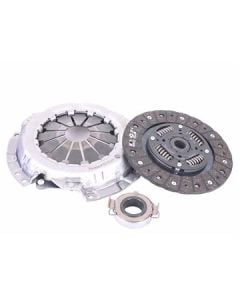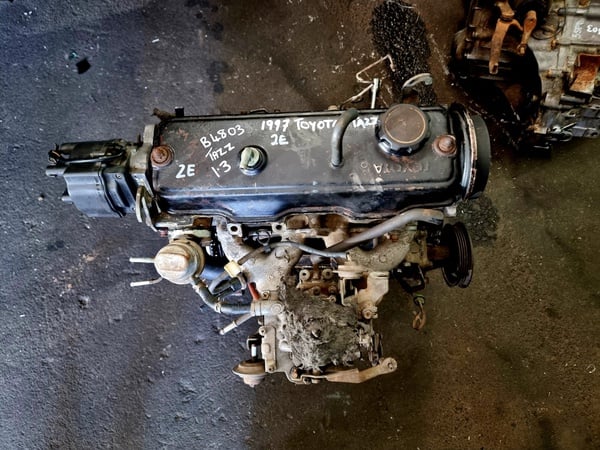Boost Your Driving Experience with Toyota Tazz Engine for Sale
Boost Your Driving Experience with Toyota Tazz Engine for Sale
Blog Article
Engine Buying Specialist Tips on Picking the Right Engine for Your Details Requirements
Choosing the best engine for your particular requirements includes an intricate interaction of factors that exceed mere horsepower numbers. From power result to sustain performance, the decision-making procedure can be discouraging. Understanding the nuances of engine types, sizes, and their compatibility with your vehicle is essential. There are experienced ideas that can assist browse this surface with self-confidence. By delving into the intricacies of power versus effectiveness, assessing gas ratings, and budgeting for long-lasting costs, one can really enhance their engine option.
Power Vs. Efficiency: Locating the Equilibrium

When selecting an engine, it is essential to strike a balance between power and performance to meet your details needs effectively. Power refers to the engine's ability to create energy for propulsion, determining factors like velocity, pulling capacity, and total efficiency (Toyota Tazz Engine For Sale). On the various other hand, effectiveness relates to exactly how well the engine utilizes fuel to generate power, influencing elements such as gas economy and ecological kindness
Attaining the right equilibrium between power and effectiveness is essential because an engine that is as well powerful may eat too much fuel, leading to higher operating expense and unnecessary stress on the atmosphere. Conversely, an engine that prioritizes performance over power may lead to slow-moving efficiency, especially sought after circumstances like towing heavy tons or driving uphill.
To make a notified decision, think about factors such as your regular driving problems, the desired usage of the car, and your individual choices. By examining your top priorities and needs, you can choose an engine that strikes the excellent equilibrium in between power and effectiveness, making sure optimum efficiency while decreasing environmental impact and operating costs.
Understanding Engine Dimension and Type

Typical engine kinds consist of inline engines, V engines, and rotary engines, each with its unique advantages and disadvantages. Comprehending the interaction in between engine size and type is crucial in choosing an engine that lines up with your specific needs and top priorities, whether it be power, efficiency, or a balance of both.
Consider Your Automobile's Needs
Considering your car's needs is a fundamental action in the engine selection process to ensure ideal performance my company and functionality. It is vital to evaluate aspects such as the planned usage of the car, its weight, towing ability, and gas efficiency demands. If you are looking for an engine for a durable vehicle that will certainly be used for towing, you will certainly need an effective engine with high torque capacities. On the other hand, if you are choosing an engine for a small automobile mostly made use of for city travelling, gas effectiveness might be a much more important aspect to consider.

Examining Fuel Efficiency Rankings
Examining fuel performance ratings is a vital element of picking the right engine for your vehicle, ensuring price savings and ecological sustainability. Gas efficiency scores, normally measured in miles per gallon (MPG) for fuel engines or kilowatt-hours per 100 miles (kWh/100 miles) for electrical engines, indicate just how much a vehicle can travel on a specific amount of gas or electrical energy. Greater MPG or reduced kWh/100 miles worths signify a lot more reliable engines, converting to lowered gas expenses and reduced carbon exhausts.
When examining gas effectiveness ratings, consider your driving demands and routines. If you commute cross countries daily, an extremely fuel-efficient engine can cause significant cost savings over time. In addition, contrast different engine choices within the same automobile class to identify the most economical selection. Elements such as engine size, weight, aerodynamics, and hybrid or electrical abilities can all affect gas efficiency.
Budgeting for Long-Term Costs
Tactically preparing for long-term expenses is critical when selecting an engine, making sure economic sustainability top article over the automobile's life expectancy. While the first acquisition rate of an engine is a considerable aspect, it is important to think about the lasting prices connected with maintenance, fixings, and fuel usage.
In addition, looking into the availability and cost of visit here substitute components for the chosen engine is vital in spending plan preparation. By thoroughly budgeting for these long-term costs and factoring them into the decision-making procedure, individuals can select an engine that not just meets their prompt requirements but also stays cost-effective throughout its life expectancy.
Verdict
Finally, selecting the best engine for your particular requirements needs stabilizing power and effectiveness, understanding engine size and kind, considering your lorry's needs, evaluating fuel efficiency ratings, and budgeting for lasting costs. By thoroughly thinking about these aspects, you can make certain that you select an engine that satisfies your requirements and gives optimum efficiency for your vehicle.
To even more improve the option process of an engine that strikes the optimal balance between power and efficiency, it is crucial to dig into the details of understanding engine size and type. Engine size refers to the overall volume of air and gas that can be pushed via the engine cyndrical tubes. Common engine types include inline engines, V engines, and rotating engines, each with its distinct benefits and downsides. Understanding the interplay in between engine size and type is crucial in picking an engine that aligns with your particular needs and concerns, whether it be power, effectiveness, or a balance of both.
Fuel performance ratings, generally measured in miles per gallon (MPG) for gas engines or kilowatt-hours per 100 miles (kWh/100 miles) for electrical engines, suggest how far a vehicle can take a trip on a particular amount of fuel or electrical energy.
Report this page